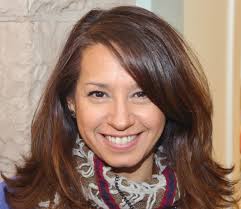The Jugglerʼs Children
By Carolyn Abraham
Random House, $32, 380 pages
Reviewed by Lynne Bowen
Carolyn Abraham is a prize-winning Canadian journalist and author whose impressive list of writing credits includes such subjects as crime, immigration, politics and medicine. Having written about topics as varied as Einsteinʼs brain and Dolly, the first mammalian clone, Abraham has earned praise in Canada, England and America for her ability to make difficult scientific topics understandable and engaging.
This ability is put to the test in her latest book, The Jugglerʼs Children, in which she describes her seven-year-long search for the origins of two of her great-grandfathers through the new discipline of genetic genealogy. Family lore had given these men-one a murderer and a juggler, the other a shipʼs captain-exotic origins but little other information.
Like a modern-day detective, Abraham submits cheek swabs from various of her male relatives for genetic testing of their Y chromosomes and travels to such far-flung places as the Nilgiri hills of southern India and a beach on Jamaicaʼs north shore. In both locations, she follows leads that may or may not turn into hard evidence, but each newly-proven connection is a triumph for both the writer and the reader.
The use of the present tense works well in Abrahamʼs description of her detective work, but when she explains the science behind genetic testing of Y chromosomes-the human chromosome capable of carrying information precise enough to follow a family back in time-she runs the risk of losing the interest of non-expert readers.
Making a technical process understandable to a layperson while still maintaining that personʼs interest is a challenge for a nonfiction writer, but a necessary one. In The Jugglerʼs Children, Abraham successfully maintains my interest as she explains matches and markers, surnames and generations in clear and metaphoric writing. But when she takes me into a complicated discussion of haplogroups, haplotypes and nucleotides, her prose bogs down. This happens regularly in the otherwise gripping account of her quest. The discovery, however, of an elderly auntʼs address book or a headstone hidden in the Jamaican undergrowth rejuvenates the prose.
An astounding number of people have sent cheek swabs for testing at one of several genetic labs in the hope of finding a connection to royalty or a trace of an indigenous ancestor. What the testing reveals is always a surprise, but not necessarily what they were hoping for. Rather, as Abraham discovered, we all have ancestors from both sides of the whip: ancestors who were slave-owners and ancestors who were slaves.
I found reassurance in the message that Abraham brings to her readers in the last pages of The Jugglerʼs Children. Given that we are all descended from the first organism identified as a human being, we all carry that personʼs genetic information. And as the population of the world continues to become more and more mobile, we are all inching ever closer to becoming a blend of all racial groups with little to distinguish one from another. We are all family.
Lynne Bowen lives in Nanaimo and is the author of Whoever Gives Us Bread: The Story of Italians in British Columbia.

{ 0 comments… add one now }